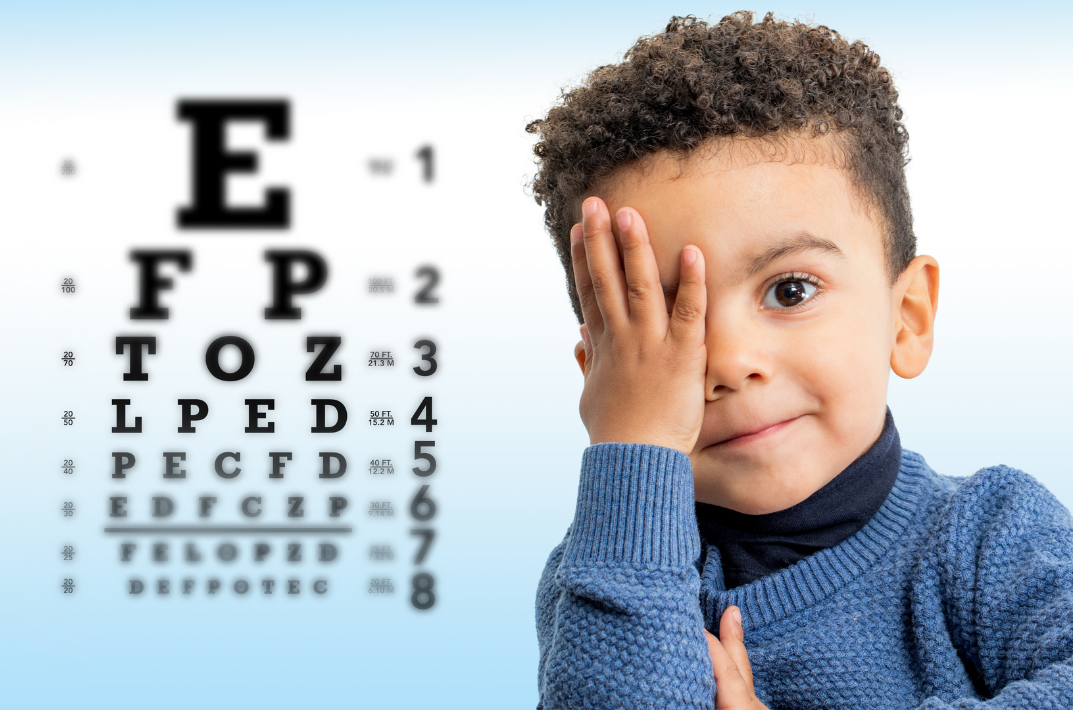At La Bleu Optique, we emphasize the critical importance of regular eye exams. Vision is one of our most vital senses, and maintaining eye health through proactive measures is essential. Many vision problems can develop gradually and go unnoticed until they significantly affect daily life. Regular eye exams are vital for the early detection and treatment of various eye conditions, ensuring that your vision remains clear and healthy.
Common Vision Issues
1. Refractive Errors: These are the most common vision issues and include myopia (nearsightedness), hyperopia (farsightedness), astigmatism, and presbyopia. Refractive errors occur when the shape of your eye prevents light from focusing correctly on the retina. Symptoms can include blurry vision, headaches, and difficulty seeing at various distances.
2. Dry Eye Syndrome: This condition occurs when your eyes don't produce enough tears or the right quality of tears to maintain moisture. Dry eyes can cause discomfort, blurred vision, and even damage to the cornea if left untreated.
3. Glaucoma: Often called the "silent thief of sight," glaucoma is a group of eye conditions that damage the optic nerve, usually due to high eye pressure. Early stages of glaucoma often have no symptoms, making regular eye exams vital for early detection.
4. Cataracts: Cataracts are a clouding of the eye's lens, leading to decreased vision. They develop slowly and can affect one or both eyes. Symptoms include blurry vision, glare sensitivity, and seeing halos around lights.
5. Age-Related Macular Degeneration (AMD): AMD affects the macula, the part of the retina responsible for sharp central vision. It can lead to a loss of central vision, making activities like reading and driving difficult. Early detection through eye exams can slow the progression of AMD.
Why Regular Eye Exams Are Crucial
1. Early Detection of Eye Diseases: Many eye conditions, such as glaucoma and AMD, progress silently without noticeable symptoms in their early stages. Regular eye exams can detect these diseases early, allowing for prompt treatment and better outcomes.
2. Updating Prescriptions: Our vision can change over time, and an outdated prescription can lead to eye strain, headaches, and decreased quality of life. Regular eye exams ensure your prescription is up-to-date, providing you with the best possible vision correction.
3. Overall Health Monitoring: Eye exams can reveal more than just vision issues. Conditions like diabetes, high blood pressure, and high cholesterol can be detected through changes in the eyes. An optometrist can refer you to a specialist if any signs of these conditions are observed.
4. Prevention and Protection: Regular eye exams allow for the early implementation of preventive measures, such as UV protection, proper eye care habits, and lifestyle adjustments that can protect your vision long-term.
5. Children’s Vision: Children may not realize they have vision problems, which can affect their learning and development. Regular eye exams are crucial for detecting and correcting vision issues in children early on, ensuring they have the best chance for success in school and life.
When to Schedule an Eye Exam
-
Adults: It’s recommended to have a comprehensive eye exam every two years if you're under 60 and annually if you're 60 or older.
-
Children: Children should have their first eye exam at six months old, another at three years old, and then regular exams before starting school and every two years thereafter.
-
High-Risk Individuals: If you have a family history of eye disease, diabetes, or high blood pressure, you may need more frequent eye exams. Your optometrist can provide a personalized schedule based on your health and risk factors.
Conclusion
Regular eye exams are a vital part of maintaining your overall health and ensuring that vision issues are detected and treated early. By prioritizing eye health, you can enjoy clearer vision, better quality of life, and early detection of potentially serious conditions. Schedule your next eye exam today and take a proactive step towards preserving your vision and overall health.

